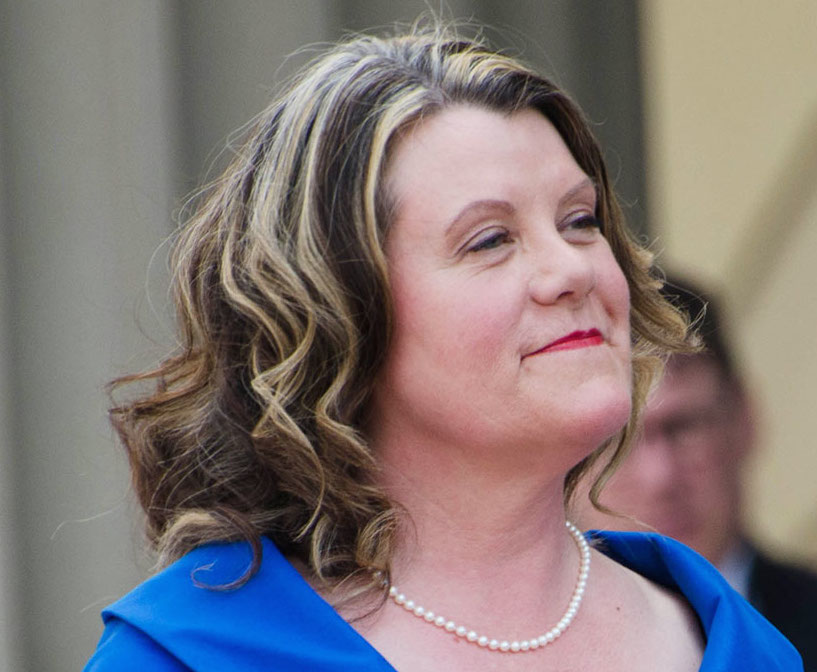Like this article? rabble is reader-supported journalism. Chip in to keep stories like these coming.
The Notley Government, clearly aware of the serious problems faced by Athabasca University and anxious to find a way to save the foundering distance-learning institution, has ordered the school’s board and administration, in effect, to straighten up and fly right.
In response, the financially troubled public University’s Tory-appointed and dominated Board of Governors seems to have defied Advanced Education Minister Lori Sigurdson and, on at least one key point, done the opposite of her bluntly worded instructions.
Judging from the decisions by the AU board and administration to overrule their own authorized bargaining team and reject a letter of understanding agreed to in negotiations with the Athabasca University Faculty Association, as well as to cut union representatives from the presidential search committee, it looks as if AU officials have no intention of paying attention to the government’s wishes.
Sigurdson’s instructions to the university were contained in an October 7 letter to interim board Chair Margaret Mrazek, who is a former president of the Progressive Conservative Party of Alberta. Mrazek, a lawyer and former nurse, also continues to serve on the Alberta Government’s Seniors Advisory Council and is a director of the St. Albert Chamber of Commerce.
Sigurdson’s letter, a copy of which has been obtained by AlbertaPolitics.ca, made reference to a meeting on September 21 between government and AU officials to discuss the report of the University’s Presidential Task Force on Sustainability.
Regular readers of this blog will recall that the grimly worded report, requested in 2014 by interim AU President Peter MacKinnon, asserted forcefully — though not necessarily persuasively — that “based on our most reliable assumptions, we project the likelihood of insolvency in 2016/2017.”
In addition to predicting AU’s imminent insolvency, task force recommendations included admitting only students from Alberta and pulling all operations out of the Town of Athabasca, which would be an economic disaster for the community and a political catastrophe for whatever government allowed it to happen.
The task force report blamed collective agreements negotiated with the University’s unions — with no mention of irresponsible management by past administrations — for AU’s current financial predicament. It demanded major takeaways from employees, especially faculty members.
In her letter to the board’s chair, Sigurdson described her meeting with University officials as productive, but went on to state: “I would like to reiterate what is required as the next steps from Athabasca University.”
Sigurdson set out five specific instructions for the AU board:
- Review AU’s institutional mandate and identify a “sustainable role” for the University
- Explore “partnership options” with other Alberta post-secondary institutions, with costs analyzed
- Provide details of how AU will increase efficiency and effectiveness, and explain how the University will be made sustainable
- Provide details of how AU will work “more collaboratively” with faculty and staff while ensuring student and community concerns are considered
- Provide an update on AU’s ongoing search for a permanent president
The board was instructed to provide the minister with its response by December 1, 2015.
While it is known the board did provide a formal response on time, a copy of that document has not yet found its way into your blogger’s hands.
Clearly, though, one part of the board’s response was the decision it made only a week after the minister’s letter, on October 14, to adopt a new presidential search policy that dropped faculty and staff union representatives from the search committee.
The old policy, dating to 2013 and seen here and here, required representatives on the search committee from the faculty association as well as units represented by the Alberta Union of Provincial Employees and the Canadian Union of Public Employees.
The change obviously flew in the face of Sigurdson’s specific instruction to Mrazek that the University “work more collaboratively with faculty and staff on sustainability issues” — unless, of course, the board doesn’t think finding a new president is a sustainability issue.
With the university in open revolt and its immediate future in question, the search for a president to replace MacKinnon — a former University of Saskatchewan president and law dean who was appointed temporarily when the last search failed to come up with an appropriate candidate — is again turning out to be a problem.
As for negotiations with the faculty association, the board undercut its own negotiating team in December when it refused to vote on the memorandum of agreement, which both negotiating committees had accepted in bargaining. Association members by then had ratified the deal. The board’s problem was with a proposal from the board bargaining team to change how the University paid out relocation payments.
The decision of the board not to vote on the MOA it had already agreed to meets the normal labour relations definition of bargaining in bad faith. However, because the faculty association is forced to bargain under the Post-Secondary Learning Act it has no recourse to adjudication by the Alberta Labour Relations Board.
Other parts of the Post-Secondary Learning Act, however, may now offer the provincial government the only options for resolving the crisis at AU, which the University’s board and administration now seem incapable or disinclined to address.
Section 99 of the Act gives the government the power to appoint an investigator with the authority to examine the financial and administrative condition of the board or any other matter connected with its operation.
Section 100 gives the government the power to fire the board and replace it with a single administrator.
Given the continuing crisis at Athabasca University, the government may have no choice but to take the actions permitted under Sections 99 and 100 if the institution is to survive.
This post also appears on David Climenhaga’s blog, AlbertaPolitics.ca.
Like this article? rabble is reader-supported journalism. Chip in to keep stories like these coming.



